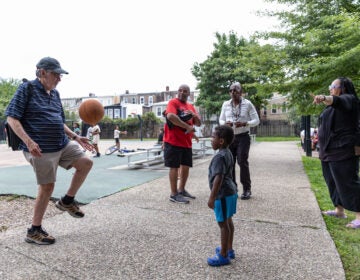Why the status of tax-exempt protections for some NJ hospitals remains unclear

A 2015 tax court ruling over Morristown Medical Center tax-exempt status has put the spotlight on other hospitals.
A year after a tax court judge ruled that Morristown Memorial Hospital no longer qualified for tax-exempt status, some 30 hospitals — more than half the nonprofit facilities in New Jersey –are now facing property tax appeals from the cash-strapped municipalities they call home.
Despite increasing concerns among hospital executives about huge tax liabilities and early calls from lawmakers to deal with what some see as a worrisome trend, there has been little action in either the Senate or Assembly on the latest proposal to address the tax-exempt status of the state’s 58 nonprofit hospitals.
The problem appears to stem largely from the growing disconnect between Senate President Stephen Sweeney (D-Gloucester) and Assembly Speaker Vincent Prieto (D-Hudson) and is further complicated by their individual differences with Republican Gov. Chris Christie. The rift between the two legislative leaders was exposed this spring as they struggled to reach an agreement over a bailout package for cash-strapped Atlantic City and highlighted boldly this week in their ongoing disagreement over the Transportation Trust Fund.
“Each of the three legs of the stool has a different approach,” observed Michael Cerra, assistant executive director of the New Jersey State League of Municipalities, which has supported the communities questioning the longstanding property tax exemption for nonprofit hospitals.
Lawmakers passed a bipartisan plan last session, with support from hospital advocates, that would have required nonprofit hospitals that conduct some for-profit clinical activities to pay a community benefit fee. But Christie pocket-vetoed the plan in January without any explanation and, two months later, called for suspending the appeals for two years while a commission studies the problem.
Christie’s plan received support from both the New Jersey Hospital Association and the New Jersey State League of Municipalities, but Sweeney and Prieto both said a solution couldn’t wait two years. To keep the ball rolling, Assemblyman Herb Conaway (D-Camden) sponsored a bill (A-3635) in April that incorporated many elements of Christie’s proposal; the following month Sen. Nilsa Cruz-Perez (D-Camden) introduced a Senate version (S-2329).
“This is an issue that needs to be addressed,” Cruz-Perez said, noting it was unfortunate that Christie did not support the original bipartisan plan. “By introducing S-2329, I intend to keep the conversation going so that we can come up with a resolution that all parties can agree to.”
Nothing has happened since. A separate measure to provide guidance for PILOT (payment in lieu of taxes) agreements between towns and nonprofit hospitals has also failed to advance, to the Hospital Association’s disappointment. While Sweeney has said he is willing to move the study commission bill, he said late last month that he didn’t want to spark another standoff with Prieto, who has made clear his preference for the bipartisan fee bill that Christie vetoed. The following day, Christie blamed Prieto for holding up the process, Politico New Jersey reported.
“The Legislature sent the governor a bill that was backed by the likes of businesses and hospitals to fix this issue,” Prieto said. “I’ve been talking to all parties involved and, as always, am ready to discuss a potential compromise, as long as it protects municipalities in the interim.”
But Betsy Ryan, president and CEO of the Hospital Association, said the delay and uncertainty is a burden on facilities across the state. The Morristown Memorial case involved more than six years of legal fees, she said, and the hospital eventually settled with the town to pay $15.5 million in back taxes. “It’s costly not only in terms of dollars, but also in terms of the relationships,” she said. “By and large I believe hospitals and their host municipalities have had really strong relationships.”
“We need the legislative leaders and the governor to agree upon one approach,” Ryan added.
An objective review of the current situation is essential, said Cerra, of the League of Municipalities. The property tax exemption for nonprofit hospitals dates back some 70 years and has not been significantly changed in more than 45 years, he said.
“The Morristown Hospital decision demonstrated there’s been some evolving business models,” he said. The ruling noted that many of the hospital’s operations, including the gift shop, parking garage and a number of clinical operations, were essentially for-profit ventures.
While the League supported Christie’s concept, Cerra said they have concerns with the language of the Conaway/Cruz-Perez plan, which would table the 30 ongoing property tax disputes and block any new challenges for two years. “We understand there is a desire to bring finality to this,” he added, “but any approach has to ensure fairness to property tax payers.”
_____________________________
NJ Spotlight, an independent online news service on issues critical to New Jersey, makes its in-depth reporting available to NewsWorks.
WHYY is your source for fact-based, in-depth journalism and information. As a nonprofit organization, we rely on financial support from readers like you. Please give today.




